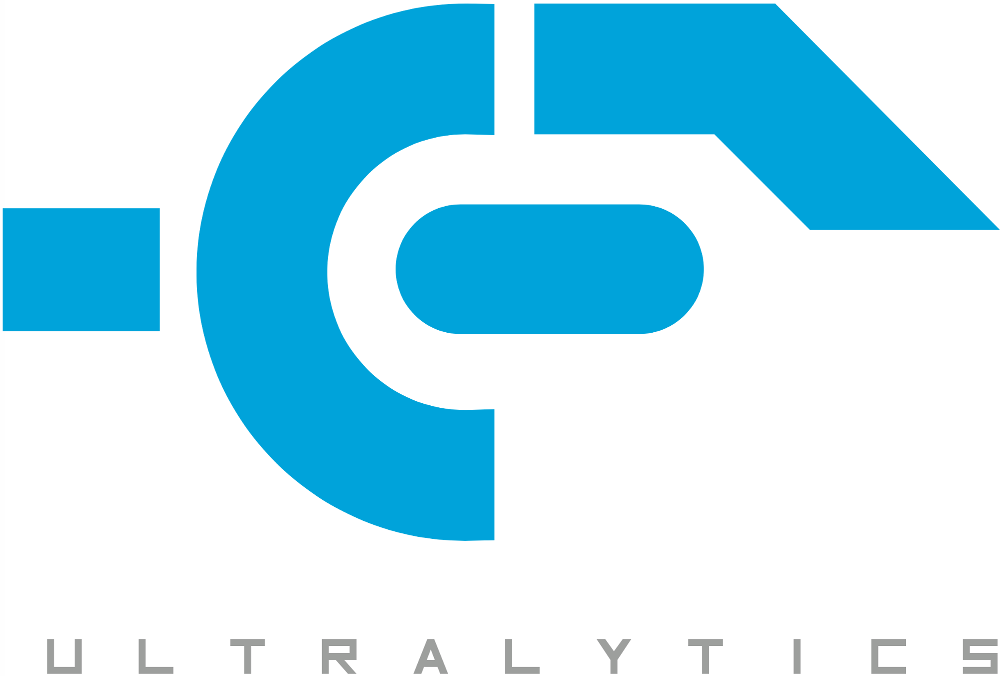
|



|

|
This directory contains PyTorch YOLOv3 software developed by Ultralytics LLC, and is freely available for redistribution under the GPL-3.0 license. For more information please visit https://www.ultralytics.com.
The https://github.com/ultralytics/yolov3 repo contains inference and training code for YOLOv3 in PyTorch. The code works on Linux, MacOS and Windows. Training is done on the COCO dataset by default: https://cocodataset.org/#home. Credit to Joseph Redmon for YOLO: https://pjreddie.com/darknet/yolo/.
Python 3.7 or later with all of the pip install -U -r requirements.txt packages including:
torch >= 1.4opencv-pythonPillow
All dependencies are included in the associated docker images. Docker requirements are:
- Nvidia Driver >= 440.44
- Docker Engine - CE >= 19.03
Our Jupyter notebook provides quick training, inference and testing examples.
Start Training: python3 train.py to begin training after downloading COCO data with data/get_coco_dataset.sh. Each epoch trains on 117,263 images from the train and validate COCO sets, and tests on 5000 images from the COCO validate set.
Resume Training: python3 train.py --resume to resume training from weights/last.pt.
Plot Training: from utils import utils; utils.plot_results() plots training results from coco_16img.data, coco_64img.data, 2 example datasets available in the data/ folder, which train and test on the first 16 and 64 images of the COCO2014-trainval dataset.
datasets.py applies random OpenCV-powered (https://opencv.org/) augmentation to the input images in accordance with the following specifications. Augmentation is applied only during training, not during inference. Bounding boxes are automatically tracked and updated with the images. 416 x 416 examples pictured below.
| Augmentation | Description |
|---|---|
| Translation | +/- 10% (vertical and horizontal) |
| Rotation | +/- 5 degrees |
| Shear | +/- 2 degrees (vertical and horizontal) |
| Scale | +/- 10% |
| Reflection | 50% probability (horizontal-only) |
| HSV Saturation | +/- 50% |
| HSV Intensity | +/- 50% |
https://cloud.google.com/deep-learning-vm/
Machine type: preemptible n1-standard-16 (16 vCPUs, 60 GB memory)
CPU platform: Intel Skylake
GPUs: K80 ($0.20/hr), T4 ($0.35/hr), V100 ($0.83/hr) CUDA with Nvidia Apex FP16/32
HDD: 1 TB SSD
Dataset: COCO train 2014 (117,263 images)
Model: yolov3-spp.cfg
Command: python3 train.py --img 416 --batch 32 --accum 2
| GPU | n | --batch --accum |
img/s | epoch time |
epoch cost |
|---|---|---|---|---|---|
| K80 | 1 | 32 x 2 | 11 | 175 min | $0.58 |
| T4 | 1 2 |
32 x 2 64 x 1 |
41 61 |
48 min 32 min |
$0.28 $0.36 |
| V100 | 1 2 |
32 x 2 64 x 1 |
122 178 |
16 min 11 min |
$0.23 $0.31 |
| 2080Ti | 1 2 |
32 x 2 64 x 1 |
81 140 |
24 min 14 min |
- - |
detect.py runs inference on any sources:
python3 detect.py --source ...- Image:
--source file.jpg - Video:
--source file.mp4 - Directory:
--source dir/ - Webcam:
--source 0 - RTSP stream:
--source rtsp://170.93.143.139/rtplive/470011e600ef003a004ee33696235daa - HTTP stream:
--source http://wmccpinetop.axiscam.net/mjpg/video.mjpg
To run a specific models:
YOLOv3: python3 detect.py --cfg cfg/yolov3.cfg --weights yolov3.weights

YOLOv3-tiny: python3 detect.py --cfg cfg/yolov3-tiny.cfg --weights yolov3-tiny.weights

YOLOv3-SPP: python3 detect.py --cfg cfg/yolov3-spp.cfg --weights yolov3-spp.weights

Download from: https://drive.google.com/open?id=1LezFG5g3BCW6iYaV89B2i64cqEUZD7e0
$ git clone https://github.com/ultralytics/yolov3 && cd yolov3
# convert darknet cfg/weights to pytorch model
$ python3 -c "from models import *; convert('cfg/yolov3-spp.cfg', 'weights/yolov3-spp.weights')"
Success: converted 'weights/yolov3-spp.weights' to 'converted.pt'
# convert cfg/pytorch model to darknet weights
$ python3 -c "from models import *; convert('cfg/yolov3-spp.cfg', 'weights/yolov3-spp.pt')"
Success: converted 'weights/yolov3-spp.pt' to 'converted.weights'$ python3 test.py --cfg yolov3-spp.cfg --weights yolov3-spp-ultralytics.pt- mAP@0.5 run at
--iou-thr 0.5, mAP@0.5...0.95 run at--iou-thr 0.7 - Darknet results: https://arxiv.org/abs/1804.02767
| Size | COCO mAP @0.5...0.95 |
COCO mAP @0.5 |
|
|---|---|---|---|
| YOLOv3-tiny YOLOv3 YOLOv3-SPP YOLOv3-SPP-ultralytics |
320 | 14.0 28.7 30.5 36.6 |
29.1 51.8 52.3 56.0 |
| YOLOv3-tiny YOLOv3 YOLOv3-SPP YOLOv3-SPP-ultralytics |
416 | 16.0 31.2 33.9 40.4 |
33.0 55.4 56.9 60.2 |
| YOLOv3-tiny YOLOv3 YOLOv3-SPP YOLOv3-SPP-ultralytics |
512 | 16.6 32.7 35.6 41.6 |
34.9 57.7 59.5 61.7 |
| YOLOv3-tiny YOLOv3 YOLOv3-SPP YOLOv3-SPP-ultralytics |
608 | 16.6 33.1 37.0 42.1 |
35.4 58.2 60.7 61.7 |
$ python3 test.py --cfg yolov3-spp.cfg --weights yolov3-spp-ultralytics.pt --img 608
Namespace(batch_size=32, cfg='yolov3-spp', conf_thres=0.001, data='data/coco2014.data', device='', img_size=608, iou_thres=0.6, save_json=True, single_cls=False, task='test', weights='last82.pt')
Using CUDA device0 _CudaDeviceProperties(name='Tesla P100-PCIE-16GB', total_memory=16280MB)
Class Images Targets P R mAP@0.5 F1: 100% 157/157 [03:12<00:00, 1.50it/s]
all 5e+03 3.51e+04 0.0573 0.871 0.611 0.106
Average Precision (AP) @[ IoU=0.50:0.95 | area= all | maxDets=100 ] = 0.419
Average Precision (AP) @[ IoU=0.50 | area= all | maxDets=100 ] = 0.618
Average Precision (AP) @[ IoU=0.75 | area= all | maxDets=100 ] = 0.448
Average Precision (AP) @[ IoU=0.50:0.95 | area= small | maxDets=100 ] = 0.247
Average Precision (AP) @[ IoU=0.50:0.95 | area=medium | maxDets=100 ] = 0.462
Average Precision (AP) @[ IoU=0.50:0.95 | area= large | maxDets=100 ] = 0.534
Average Recall (AR) @[ IoU=0.50:0.95 | area= all | maxDets= 1 ] = 0.341
Average Recall (AR) @[ IoU=0.50:0.95 | area= all | maxDets= 10 ] = 0.557
Average Recall (AR) @[ IoU=0.50:0.95 | area= all | maxDets=100 ] = 0.606
Average Recall (AR) @[ IoU=0.50:0.95 | area= small | maxDets=100 ] = 0.440
Average Recall (AR) @[ IoU=0.50:0.95 | area=medium | maxDets=100 ] = 0.649
Average Recall (AR) @[ IoU=0.50:0.95 | area= large | maxDets=100 ] = 0.735This command trains yolov3-spp.cfg from scratch to our mAP above. Training takes about one week on a 2080Ti.
$ python3 train.py --weights '' --cfg yolov3-spp.cfg --epochs 273 --batch 16 --accum 4 --multiTo access an up-to-date working environment (with all dependencies including CUDA/CUDNN, Python and PyTorch preinstalled), consider a:
- GCP Deep Learning VM with $300 free credit offer: See our GCP Quickstart Guide
- Google Colab Notebook with 12 hours of free GPU time: Google Colab Notebook
- Docker Image from https://hub.docker.com/r/ultralytics/yolov3. See Docker Quickstart Guide
Issues should be raised directly in the repository. For additional questions or comments please email Glenn Jocher at glenn.jocher@ultralytics.com or visit us at https://contact.ultralytics.com.


